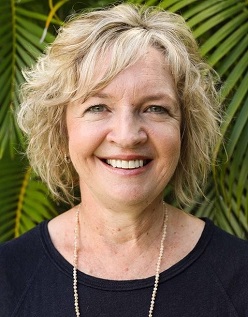I often hear people say things like:
“I don’t need counselling,” or “Counselling won’t fix the problem”, or “Going to counselling won’t change my circumstances”.
However, if you are trying to decide if you should go for counselling, it helps to know more about what to expect.
Counselling can be an opportunity for you to be heard, for your experience to be shared and accepted without judgement.
Carl Rogers writes:
Empathy is a special way of coming to know another and ourself, a kind of attuning and understanding. When empathy is extended, it satisfies our needs and wish for intimacy, it rescues us from our feelings of aloneness.”
What can I gain from Counselling?
There are many potential benefits you could gain from counselling. It’s an opportunity to discuss, devise, discern and decide on better ways to live, relate and be in the world. Counselling can also bring hope to what seems to be a hopeless situation.
You may also gain improved communication and interpersonal skills, greater self-acceptance and self-esteem, the ability to change self-defeating behaviours / habits, and learn how to increase your self-care.
What to Expect from Your First Session
During your first session we will collect and record some personal information that is relevant to your current situation. All information shared is confidential in a similar way as with your GP. Together we will look at the confidentiality agreement where all information remains confidential unless there is a threat to your life or another person is at risk, or your notes have been subpoenaed by a court.
Many clients wonder how many sessions will be needed, and this will vary for each person. Brief work is usually to address symptom relief, however longer work is needed for the ability to change belief systems. You can expect that your needs will be assessed during your first 1-3 visits and you will be provided with an idea of the type of therapy required, and the time commitment to meet your goals.
As I am a clinical counsellor, your counselling session may be covered under your private health fund. Health funds vary their criteria depending on your level of cover. Therefore, it is your responsibility to ensure you are eligible before attending your appointment and making a claim. The office staff will let you know the private health funds that allow rebates.
How do I Know if a Counsellor is right for me?
There are three things you should feel if your therapist is right for you: safety, competence, and a sense of connection. By safety, I mean that you should feel like you can be yourself and honest. Your counsellor should create a judgment-free zone where you can freely express what you feel and think. Sometimes you and your counsellor may decide that it is best for you to meet with another counsellor; that’s because it is important to find a counsellor that works for you. Even if you have been to counselling before, and have not had a good experience, keep trying until you find that person who you connect with.
How Counselling Operates
Counselling is a mutual, collaborative process. We will work together to develop goals on which you want to work. I cannot change you but act as a facilitator. It is your responsibility to make the effort to work on the problems or issues that concern you, and I am committed to helping you in this process.
When working with a counsellor it is important to honour the commitment you have made to meet your counsellor and take an active role. For example, it is helpful if you:
- spend time between scheduled sessions thinking about what we have discussed;
- follow through on any actions you agreed upon;
- take the initiative to bring up issues or topics that are a concern for you.
Counselling works best when we develop a good working relationship, that is based on mutual trust, honesty and respect.
 Author: Fiona Muller, B Soc Sc, Major in Counselling; Member of PACFA and CCAA.
Author: Fiona Muller, B Soc Sc, Major in Counselling; Member of PACFA and CCAA.
Fiona provides counselling at two Brisbane locations: Vision Psychology Wishart, and M1 Psychology Loganholme. Having previously worked with women’s groups, aged care, child care, pre-marriage counselling and community outreach programs, and herself married for nearly 30 years with two young adult children, Fiona’s experiences have given her a greater understanding and empathy of the many challenges and losses that life brings.
To make an appointment try Online Booking. Alternatively, you can call Vision Psychology Wishart on 3088 5422 or M1 Psychology Loganholme on (07) 3067 9129.